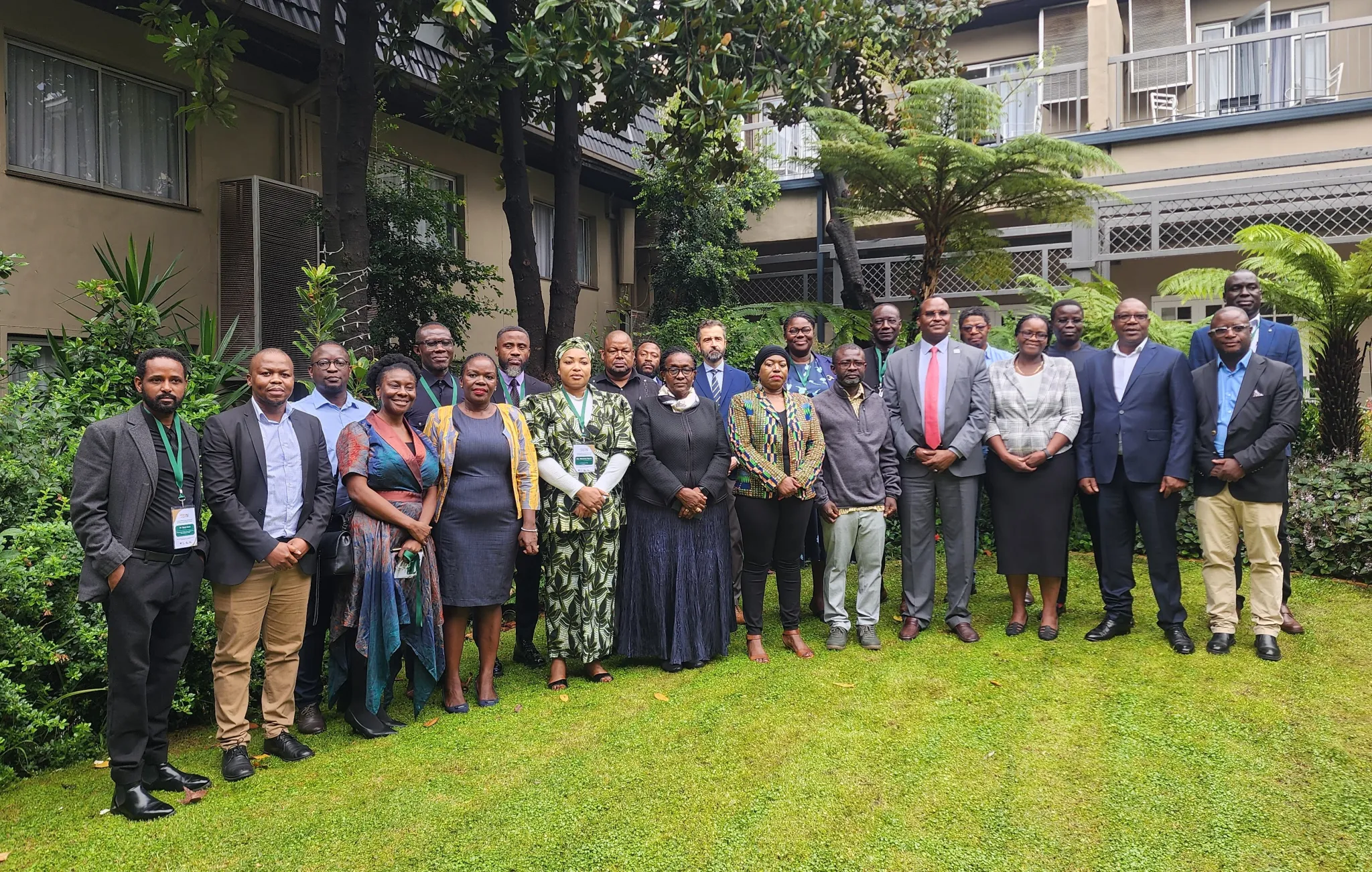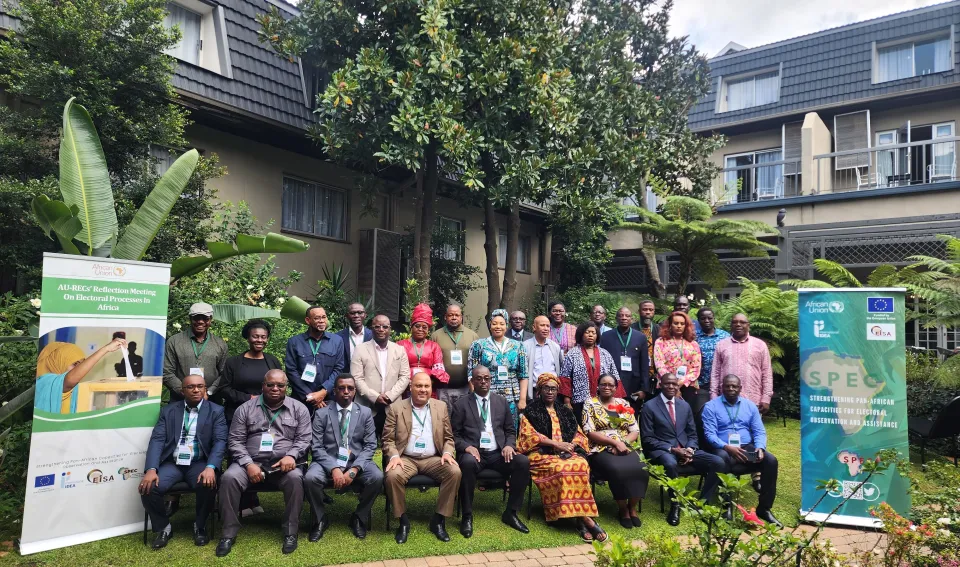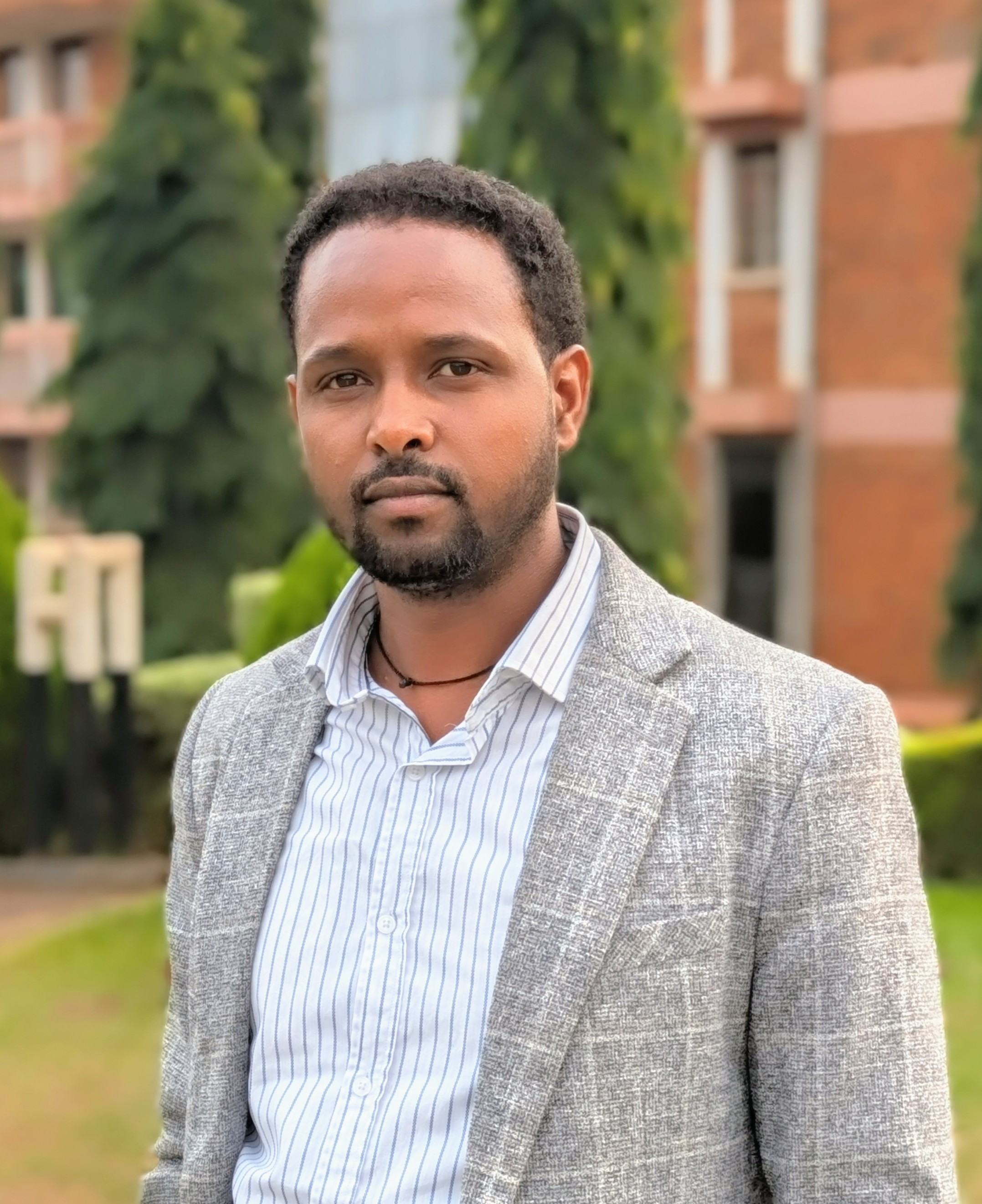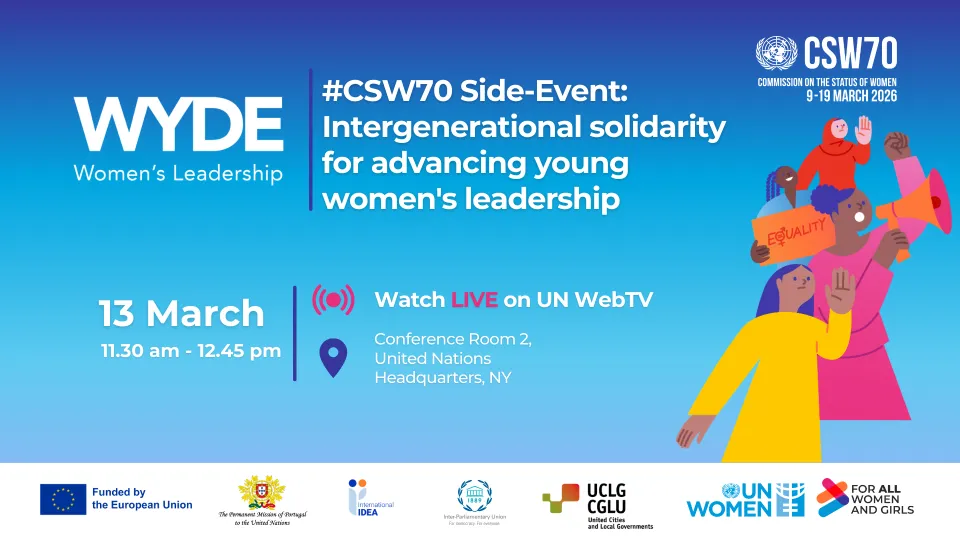A collaborative reflection with the African Union and Regional Economic Communities

The meeting brought together representatives from Election Management Bodies (EMBs) of countries scheduled to hold elections in 2025 and 2026, Regional Economic Communities (RECs) such as COMESA, ECOWAS, IGAD, SADC, and EAC, as well as regional electoral networks like ECF-SADC, ECONEC, and AAEA. Technical partners, including EISA and IFES, also participated. With 25 national elections anticipated across 2025 and 2026, the gathering served as a platform for dialogue, coordination, and strategic planning.
International IDEA supported the event as part of its ongoing partnership with the African Union within the framework of the memorandum of understanding, through the EU-funded Strengthening Pan-African Capacities for Electoral Observation and Assistance (SPEC) project. Through this partnership, IDEA contributed technical expertise, financial support and helped shape a co-created roadmap for harmonized electoral support.
Participants reflected on the 2024 elections, identifying successes, challenges, and lessons learned. Key areas of concern included misinformation, the influence of social media, limited inclusion of women and marginalized groups, the high financial costs of elections, cyber threats, and political interference. The need to reduce election costs—such as through single ballot paper systems and the necessity of assessing elections beyond polling day were also highlighted, alongside Africa’s evolving electoral needs.
EMBs sharing best practices like vote matching from the 2024 elections and identified specific areas where technical support is needed, including voter registration updates, civic and voter education, combating disinformation, media training, resource mobilization, and results management. AUPAPS and International IDEA’s involvement was crucial in guiding conversations around best practices, sharing comparative experiences, and supporting the creation of a regional framework for information sharing.
The meeting further called for formalized peer-to-peer exchanges among EMBs to spread best practices and elevate electoral standards. Given the diversity of national contexts, technical disparities among EMBs, and declining public trust in elections, there is a pressing need for context-specific, cycle-based assessments. A more integrated and responsive approach by the AUPAPS, RECs, and EMB networks was encouraged to adapt to the rapidly changing electoral landscape.
The meeting concluded with a jointly developed roadmap for harmonized electoral support across 2025–2026, spearheaded by the AU, RECs, EMBs, and partners. Participants recognized past efforts to support electoral processes in AU Member States and emphasized the need for continental and regional guidelines to improve coordination. Early and inclusive consultations with host countries, along with tailored and jointly defined objectives, were highlighted as key to effective election support, especially in sensitive or complex contexts. The importance of preventative diplomacy was stressed to build trust and ensure smooth implementation of electoral initiatives.
This initiative marks a significant step toward building resilient electoral systems in Africa. By aligning the efforts of the AUPAPS, RECs, EMBs, and technical partners, and with the consistent support of organizations like International IDEA, the continent can more effectively safeguard electoral integrity and deepen democratic governance.
Resource: For further information please read/download the Inception report





